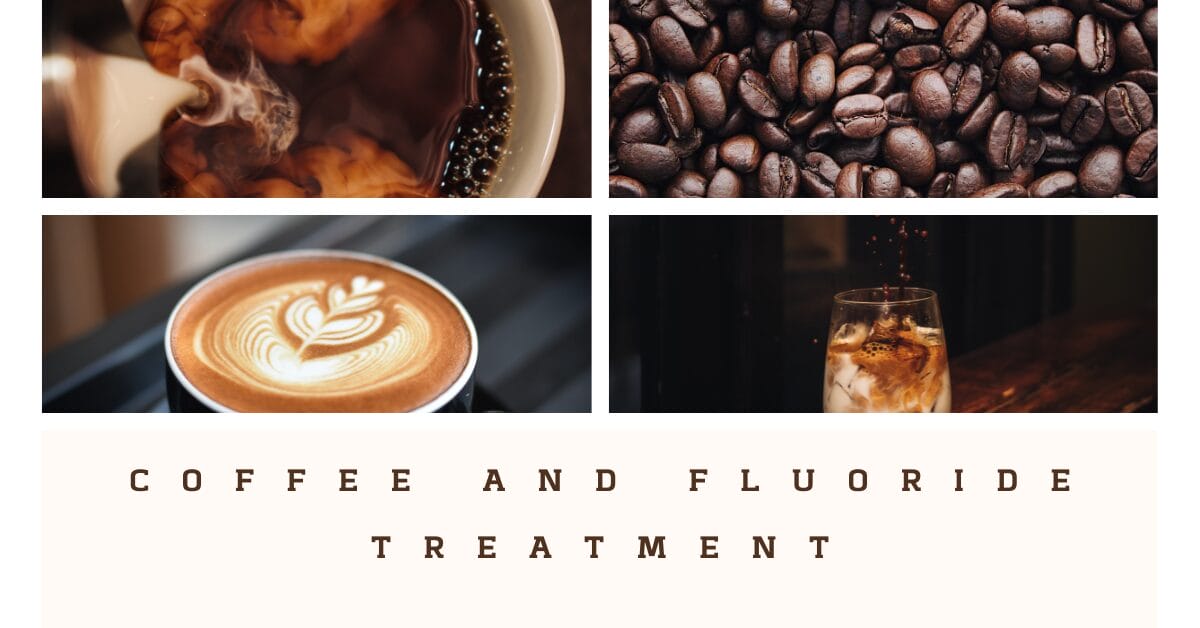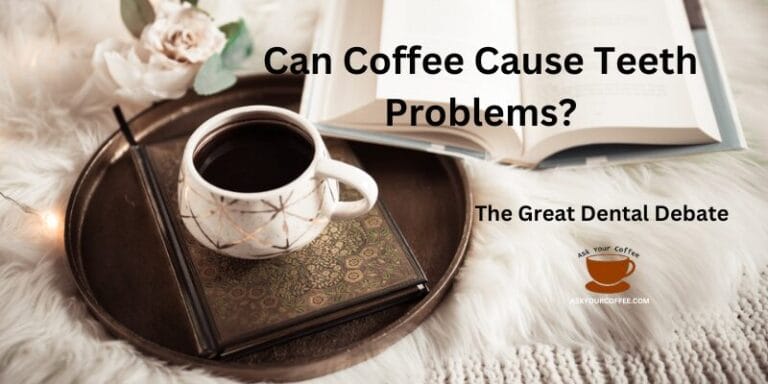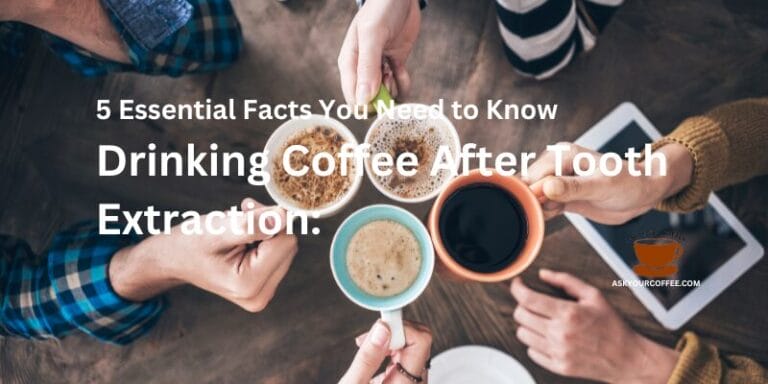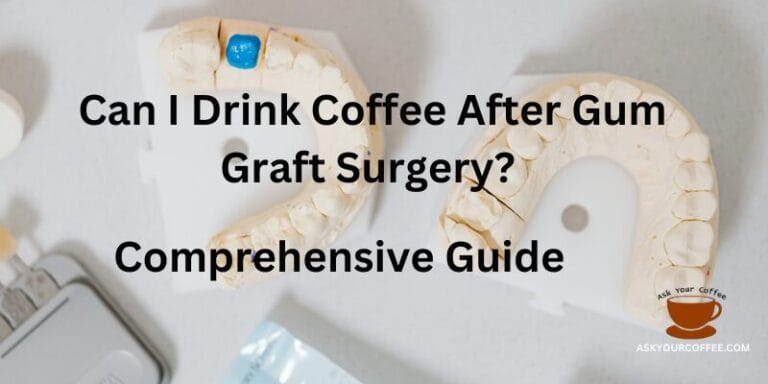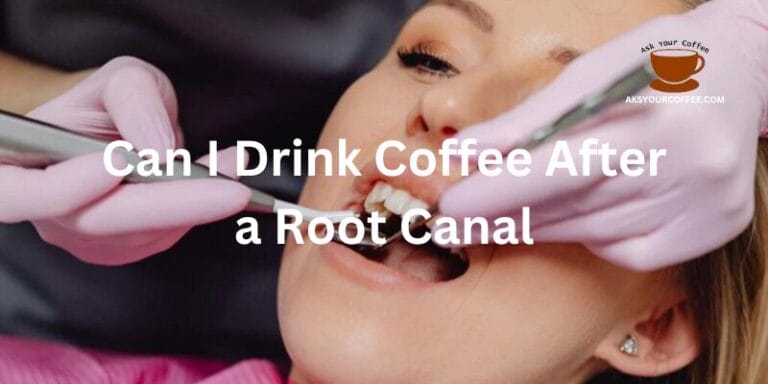Can You Drink Coffee After Fluoride Treatment? Expert Oral Guide
Coffee lovers rejoice! We all know that nothing beats that first sip of freshly brewed coffee in the morning. But if you’ve recently had a fluoride treatment, you might be wondering Can You Drink Coffee After Fluoride Treatment? without compromising your dental health.
Well, fear not caffeine enthusiasts, because we’re here to spill the beans on how long after fluoride treatment you can safely enjoy your beloved brew. So grab a mug and let’s dive into this piping hot topic!
Disclaimer: The information provided in this guide is for general educational purposes only and should not be considered professional medical advice. Always consult with a dental professional for personalized guidance.
Table of Contents
What is Fluoride Treatment?
Fluoride treatment is a dental procedure that involves the application of fluoride to your teeth. Fluoride, a naturally occurring mineral, has been proven to strengthen tooth enamel and protect against cavities. During the treatment, your dentist will apply a concentrated fluoride gel or foam onto your teeth using a mouth tray or brush.
Why Fluoride Treatment?
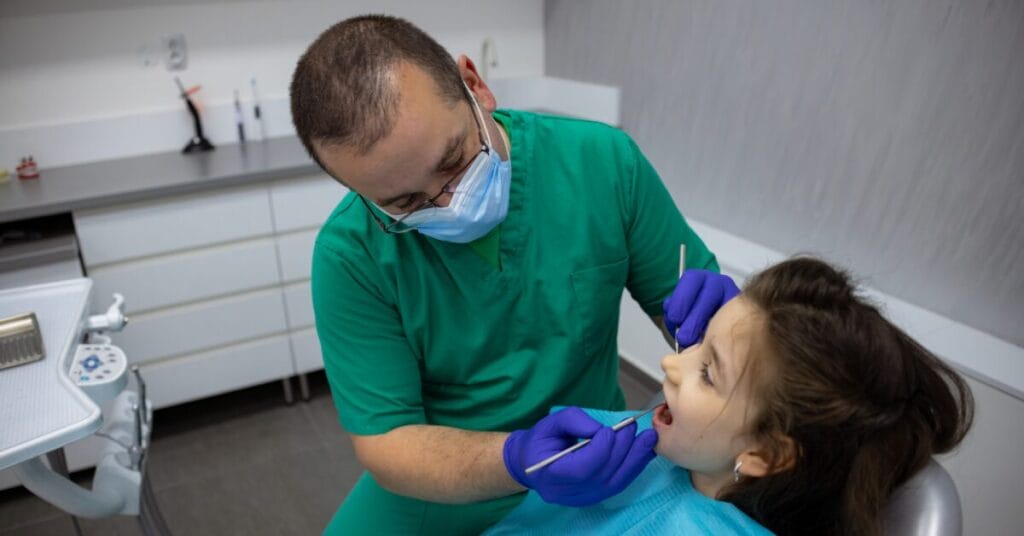
The purpose of this treatment is to replenish and enhance the natural fluoride levels in your teeth. This helps to prevent tooth decay by making the enamel more resistant to acid attacks from bacteria and sugary foods. By strengthening the enamel, fluoride treatment can effectively reduce the risk of cavities and promote overall oral health.
While regular brushing with fluoridated toothpaste provides some protection, professional fluoride treatments offer a higher concentration for maximum benefit. It’s important to note that individuals at higher risk for tooth decay, such as children and those with certain medical conditions, may require more frequent fluoride treatments.
Fluoride treatment is an effective preventive measure for maintaining healthy teeth and preventing dental issues down the road. So if you’re due for a visit to your dentist’s office, don’t be surprised if they recommend this beneficial treatment!
When Can You Drink Coffee After Fluoride Treatment?
After getting a fluoride treatment at the dentist, you might be wondering when it’s safe to indulge in your beloved cup of coffee. While caffeine boosts your energy and mental alertness, it can also have some negative effects on your teeth. But fear not! There is good news for all you coffee lovers out there.
Typically, after receiving a fluoride treatment, dentists advise waiting at least 30 minutes before consuming any food or drink. This includes coffee. Why? Well, fluoride treatments work by strengthening the enamel on your teeth and making them more resistant to decay. The idea behind waiting is to allow enough time for the fluoride to fully penetrate and bond with your tooth enamel.
It’s important to note that this timeframe may vary depending on the specific instructions given by your dentist or dental hygienist. They are familiar with the type of fluoride used during treatment and can provide personalized guidance based on their expertise.
Additionally, if you’re an avid consumer of acidic beverages like coffee or soda, it’s wise to limit your intake altogether or switch to less damaging alternatives such as herbal tea or water infused with fruits like lemon or berries.
Remember that proper oral hygiene practices go hand in hand with maintaining healthy teeth. Regular brushing and flossing combined with routine dental check-ups will help keep those pearly whites strong and cavity-free.
So next time you get a fluoride treatment at the dentist, don’t fret about missing out on enjoying your daily dose of java – just give it a little bit of time before indulging in that delicious cup of joe!
The Effects of Fluoride on Teeth.
Fluoride is a mineral that plays a crucial role in maintaining dental health. When applied topically, such as through fluoride treatment at the dentist’s office, it can strengthen tooth enamel and make teeth more resistant to acid attacks from plaque bacteria and sugars.
The Benefits of Fluoride on Teeth.
One of the primary benefits of fluoride is its ability to prevent tooth decay. It does this by re-mineralizing areas of teeth that have been weakened by acids produced by bacteria in the mouth. This helps to repair early signs of decay before they progress into cavities.
In addition to preventing tooth decay, fluoride also plays a role in inhibiting the growth of harmful oral bacteria. Reducing bacterial activity can help prevent gum disease and other oral infections.
Another important effect of fluoride on teeth is its potential for reversing the early stages of tooth decay. When applied directly to affected areas, fluoride can penetrate the enamel and halt or even reverse demineralization.
It’s important to note that while fluoride offers numerous benefits for dental health, excessive consumption or exposure can lead to fluorosis—a condition characterized by white spots or streaks on the teeth. This is why it’s crucial to follow professional guidelines and recommendations regarding appropriate amounts of fluoride usage.
Incorporating fluoride treatments into your oral care routine can have significant positive effects on your dental health—strengthening enamel, preventing decay, inhibiting bacterial growth—and ultimately promoting long-term oral well-being without any negative consequences when used responsibly.
How Does Coffee Affect Teeth?
Coffee is a popular beverage enjoyed by millions of people around the world. Its rich flavor and energizing effects make it a staple in many morning routines. However, coffee does have some potential drawbacks when it comes to oral health.
Coffee Effects on Your Teeth.
One of the main concerns with coffee consumption is its staining effect on teeth. The dark pigments found in coffee can gradually discolor enamel, leading to yellow or brown stains over time. This can be especially noticeable for frequent coffee drinkers who don’t practice proper oral hygiene.
Another issue with coffee is its acidity level. Coffee is acidic, which means that it has the potential to erode tooth enamel if consumed excessively or without adequate dental care. Enamel erosion can weaken teeth and increase the risk of cavities and sensitivity.
Many people enjoy adding sugar or sweeteners to their coffee, which can further contribute to dental problems such as tooth decay and gum disease if not properly managed.
While enjoying a cup of coffee occasionally may not cause significant harm to your teeth, regular consumption without proper oral care could lead to staining, enamel erosion, and other dental issues over time. It’s important to practice good oral hygiene habits such as brushing twice daily with fluoride toothpaste, flossing regularly, and visiting your dentist for routine check-ups and cleanings.
Other Factors to Consider.
Aside from the timeframe after fluoride treatment, there are other factors you should consider before indulging in your favorite cup of coffee. One important factor is the overall health of your teeth and gums. If you have any existing dental issues or sensitivity, it may be best to wait a bit longer before consuming coffee.
Another factor to keep in mind is the temperature of your coffee. Hot beverages can increase tooth sensitivity, especially right after a fluoride treatment. To minimize potential discomfort, allow your coffee to cool down slightly before taking that first sip.
It’s also worth considering what additives you put in your coffee. Sugary syrups, creams, and sweeteners can contribute to tooth decay and counteract the benefits of fluoride treatment. Opt for unsweetened options or use healthier alternatives like almond milk or stevia.
Furthermore, if you regularly consume acidic foods or drinks such as citrus fruits or soda, it’s essential to be mindful of their impact on your teeth alongside caffeine consumption. Acidic substances can weaken tooth enamel over time and make them more susceptible to staining.
Maintaining good oral hygiene practices is crucial regardless of when you enjoy your post-fluoride treatment coffee fix. Brushing twice a day with fluoride toothpaste and flossing daily will help protect against cavities and maintain optimal oral health.
Remember that these factors vary depending on each individual’s dental condition and professional advice from a dentist should always be sought when making decisions about post-treatment care.
Tips for Maintaining Healthy Teeth After Drinking Coffee
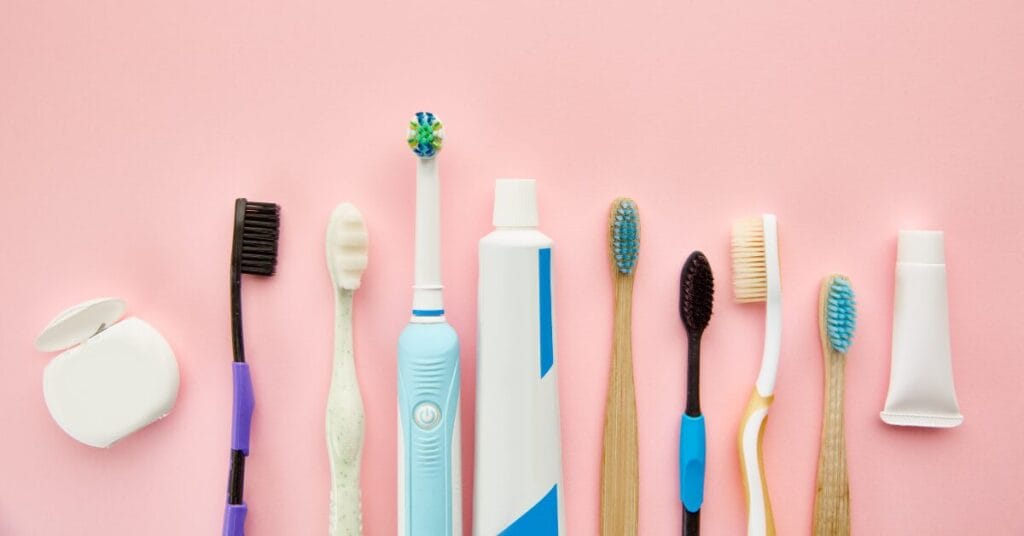
1. Brush and Floss Regularly: The foundation of good oral hygiene lies in brushing your teeth at least twice a day and flossing once daily. This helps remove plaque buildup, prevent cavities, and maintain fresh breath.
2. Choose the Right Toothpaste: Look for toothpaste that contains fluoride to strengthen enamel and protect against decay. Additionally, consider using toothpaste with whitening properties or specialized formulas if you have specific dental concerns.
3. Adopt a Balanced Diet: A nutritious diet not only benefits your overall health but also contributes to healthy teeth. Limit sugary snacks and beverages as they can lead to tooth decay. Instead, opt for fruits, vegetables, lean proteins, dairy products, and whole grains.
4. Stay Hydrated: Drinking plenty of water throughout the day promotes saliva production which helps rinse away bacteria and food particles from your mouth.
5. Visit Your Dentist Regularly: Regular dental check-ups are essential for detecting any potential issues early on before they become major problems. Your dentist will thoroughly clean your teeth while keeping an eye out for signs of gum disease or other oral health conditions.
6. Brush Properly: Remember to brush all surfaces of your teeth using gentle circular motions without applying too much pressure as this can damage the enamel over time.
7. Take Care of Your Tongue: Don’t forget about tongue cleaning! Bacteria can accumulate on the surface of your tongue leading to bad breath so make sure to gently brush it or use a tongue scraper regularly.
Remember that these tips should be followed consistently to maintain optimal oral health!
The Bottom Line.
Fluoride treatment is like a superhero for your teeth. It makes them strong and shields them from pesky cavities. But coffee, our trusty sidekick, can turn against us. You see, coffee has some acids that can slowly hurt our teeth, especially right after a fluoride treatment. It might make the treatment less effective or cause some tooth sensitivity in some folks.
To make the most of your fluoride treatment, just hang on for 30 minutes before you eat or drink anything, coffee included. This gives the fluoride the chance to work its magic on your teeth. And don’t forget your daily dental duties – brushing with fluoride toothpaste, flossing, and eating a balanced diet with fewer sugary treats and drinks – they’re all part of the plan to keep your smile in top shape.
Talk to your dentist too; they’ll give you personalized advice based on your dental needs and help you figure out the best time to enjoy your coffee after getting your fluoride boost. Knowing how things like fluoride treatments and your daily habits affect your dental health can help you make smart choices for a lasting bright and healthy smile.
So, go ahead and savor that coffee, just give it a little time after your fluoride treatment before that first sip!
Frequently Asked Questions – FAQs
Q1. Can you drink anything after fluoride?
Ans. Yes, you can drink water right after a fluoride treatment. Water won’t interfere with the fluoride’s work on your teeth.
Q2. How long after a dental cleaning can I drink coffee?
Ans. It’s a good idea to wait at least 30 minutes after a dental cleaning before sipping on your coffee. This gives your teeth some time to settle after the cleaning.
Q3. What are the don’ts after fluoride treatment?
Ans. After a fluoride treatment, avoid eating or drinking anything for about 30 minutes. This includes coffee, as it can interfere with the fluoride’s effectiveness.
Q4. Can I drink coffee after tooth filling?
Ans. It’s best to wait for about 30 minutes after a tooth filling before having coffee. This gives the filling time to set properly in your tooth.

